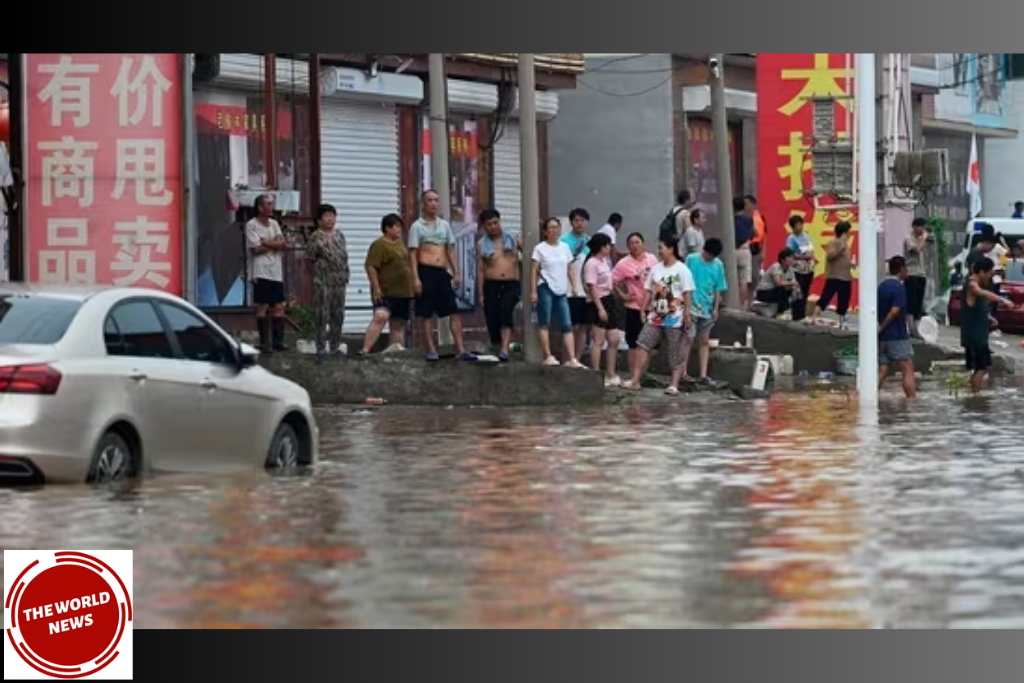In recent weeks, the city of Beijing has been grappling with an unprecedented natural disaster – record-breaking rainfall that has led to devastating floods, landslides, and infrastructural damage. The consequences of this extreme weather event have been profound, resulting in loss of life, displacement of people, and extensive destruction.
As officials scramble to manage the aftermath, it’s imperative to not only understand the immediate impacts but also recognize the broader context of climate change that could be contributing to such catastrophic occurrences.
The Unprecedented Rainfall
The heavy rain and floods that hit Beijing are unlike anything the city has experienced in its 140-year recorded history. The meteorological service announced that these recent rains have been the heaviest on record, a grim testament to the intensity of the disaster.
The consequences of this deluge have been dire, with flooding causing buildings to collapse, roads to wash away, and communities to be submerged. The latest figures reveal that 33 individuals have lost their lives due to the floods, while 18 others are still missing.
Infrastructure and Lives Devastated
One of the most distressing aspects of this disaster has been the destruction of infrastructure. Roads, bridges, and buildings have succumbed to the force of the floodwaters, leaving behind a trail of debris and despair. In addition to infrastructure damage, the loss of life has been heartbreaking.
The majority of deaths were attributed to flooding and building collapses. The tragedy underscores the vulnerabilities of cities to extreme weather events, especially when urban planning and infrastructure development are not equipped to withstand such pressures.
Government Response and Preparedness
The severity of this natural disaster has raised questions about the preparedness and response of the government and local authorities. Initial figures provided by officials significantly underestimated the scale of the catastrophe, fueling doubts about transparency and communication.
While Vice-Mayor Xia Linmao expressed condolences for the victims, there is a growing demand for accountability and improved disaster response strategies. As extreme weather events become more frequent and intense, it’s crucial for governments to have comprehensive plans in place to mitigate the impact on vulnerable communities.
A Pattern of Disaster Across China
The Beijing floods are not an isolated incident within China. Across northern regions of the country, floods have caused extensive damage and loss of life.
In July alone, natural disasters were responsible for 147 deaths or disappearances. The majority of these were due to flooding and geological disasters, which point to the vulnerabilities of China’s landscape in the face of extreme rainfall. Hebei province, adjacent to Beijing, and northeastern Jilin have also suffered casualties and destruction, further underscoring the widespread impact of this year’s monsoon season.
Climate Change Amplifying Disasters
While the immediate cause of extreme rainfall is complex and involves meteorological factors, the overarching influence of climate change cannot be ignored.
The scientific community has long warned that climate change intensifies weather patterns, leading to more frequent and severe events. Rising global temperatures contribute to the increased evaporation of water, leading to heavier rainfall in certain regions.
In the case of Beijing’s floods, it’s plausible that the changing climate has exacerbated the already unpredictable monsoon season, resulting in the catastrophe witnessed.
The Human Element: Communities in Crisis
Amidst the data and figures, it’s important to remember that behind every statistic is a human story. The experiences of those affected by the floods are a stark reminder of the vulnerability of communities in the face of extreme weather events.
Zheng Xiaokang’s account of the flooding in Jiangxi village highlights the fear and urgency that come with rising water levels. Evacuations become a lifeline, and without timely intervention, the consequences could have been even more devastating.
The devastating rainfall and floods that have impacted Beijing and other regions of China serve as a somber reminder of the urgent need to address climate change.
As extreme weather events become more frequent and intense, it’s crucial for governments, communities, and individuals to adapt and implement strategies that reduce vulnerability and ensure timely responses.
The Beijing floods should serve as a wake-up call for a concerted effort to mitigate climate change and its dire consequences. It’s time to not only mourn the lives lost but also take decisive action to prevent such tragedies from becoming the new normal.
Stay updated with the latest news at The World News.



